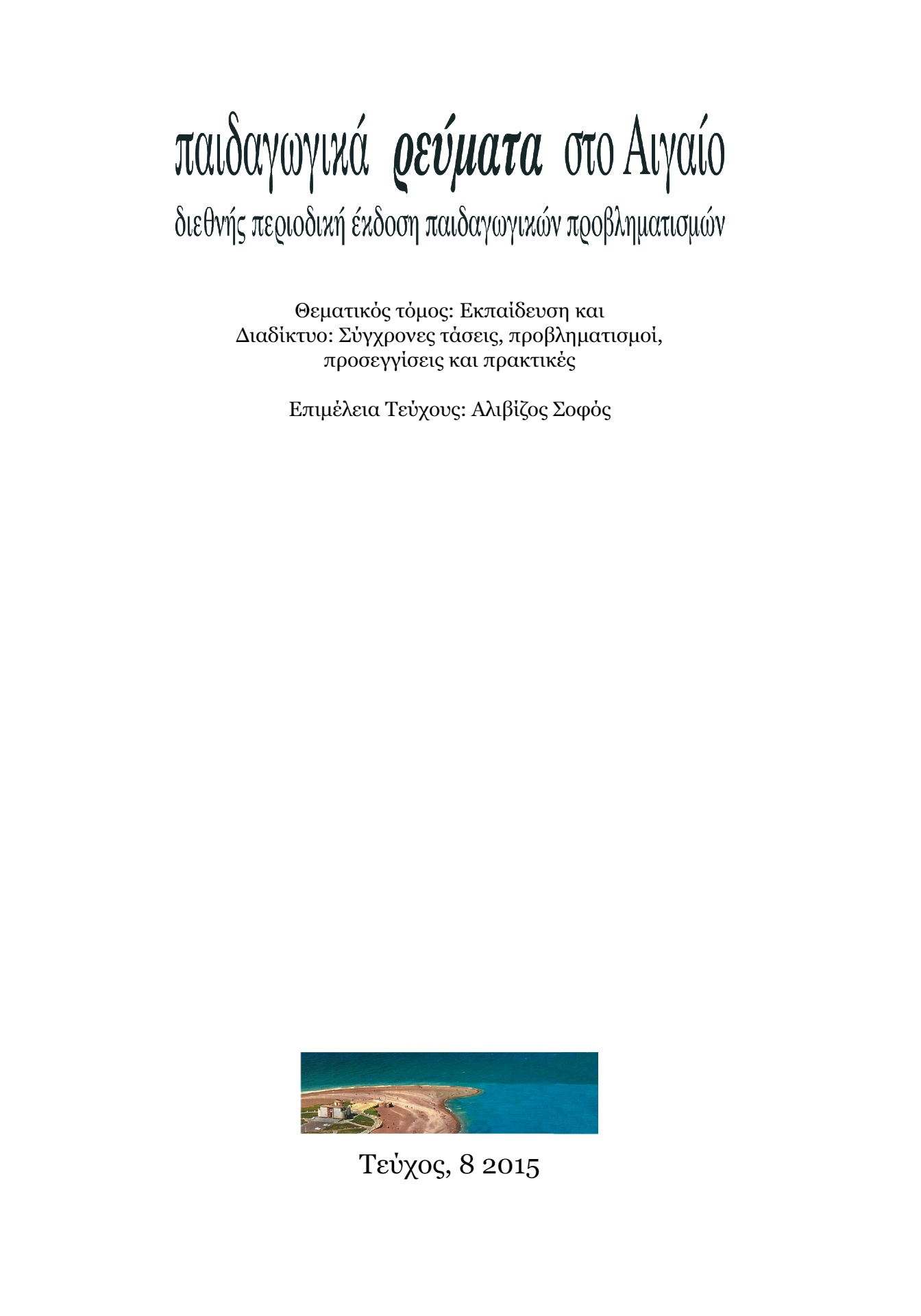Κοινότητες Μάθησης στην Ελληνική Διασπορά: Ο Ρόλος της Τηλεδιάσκεψης
Περίληψη
This paper explores the possibilities of using video-conferencing as part of a sister class project in order to increase the use of Greek as a second or foreign language. The research described in this paper is part of a European Union-funded project which is run by the Centre of Migration and Intercultural Studies of the University of Crete and is supervised by the Greek Ministry of Education. As a result of this program, an electronic learning environment was designed to enable the teaching and learning of Greek language and history among pupils (K-12) who attend various forms of Greek-language education worldwide. The web-based environment allows students and teachers to engage in interactive and multimodal learning tasks promoting language learning. It also gives teachers and students the opportunity to become part of a community of learning through global learning networks and to use what they have learned in creative ways and in ways that have meaning for the learners. This program has been in effect for three years, from 2011 to this date. This paper will focus on one of the twelve twinned-classrooms which took part in the Communities of Learning during the 2012-2013 school year. This case study draws conclusions dealing with the benefits of video conferencing for second/foreign language learning.
Λεπτομέρειες άρθρου
- Πώς να δημιουργήσετε Αναφορές
-
Κούρτη-Καζούλλη1 Β., Σπαντιδάκης Γ., & Καπλανέρη Μ. (2022). Κοινότητες Μάθησης στην Ελληνική Διασπορά: Ο Ρόλος της Τηλεδιάσκεψης. Παιδαγωγικά ρεύματα στο Αιγαίο, 8(1). https://doi.org/10.12681/revmata.31142
- Τεύχος
- Τόμ. 8 Αρ. 1 (2015)
- Ενότητα
- Θεωρείο

Αυτή η εργασία είναι αδειοδοτημένη υπό το CC Αναφορά Δημιουργού – Μη Εμπορική Χρήση – Παρόμοια Διανομή 4.0.



